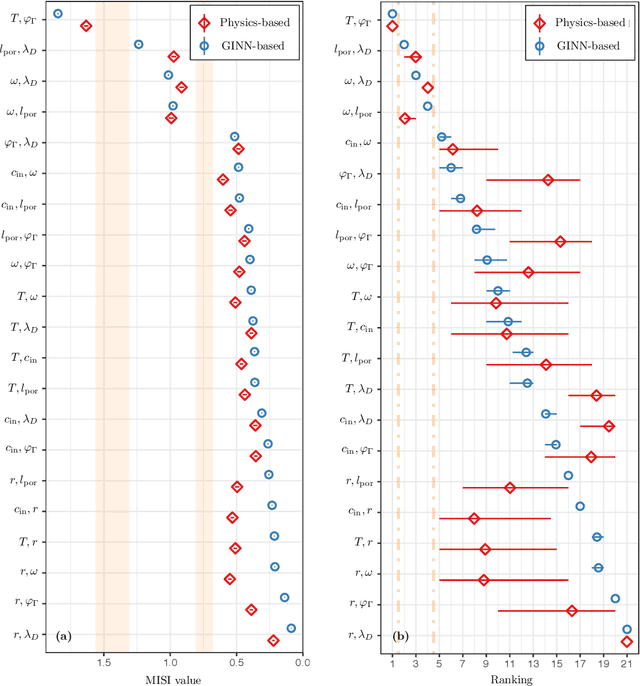Eric J. Hall
Mutual Information for Explainable Deep Learning of Multiscale Systems
Sep 07, 2020



Abstract:Timely completion of design cycles for multiscale and multiphysics systems ranging from consumer electronics to hypersonic vehicles relies on rapid simulation-based prototyping. The latter typically involves high-dimensional spaces of possibly correlated control variables (CVs) and quantities of interest (QoIs) with non-Gaussian and/or multimodal distributions. We develop a model-agnostic, moment-independent global sensitivity analysis (GSA) that relies on differential mutual information to rank the effects of CVs on QoIs. Large amounts of data, which are necessary to rank CVs with confidence, are cheaply generated by a deep neural network (DNN) surrogate model of the underlying process. The DNN predictions are made explainable by the GSA so that the DNN can be deployed to close design loops. Our information-theoretic framework is compatible with a wide variety of black-box models. Its application to multiscale supercapacitor design demonstrates that the CV rankings facilitated by a domain-aware Graph-Informed Neural Network are better resolved than their counterparts obtained with a physics-based model for a fixed computational budget. Consequently, our information-theoretic GSA provides an "outer loop" for accelerated product design by identifying the most and least sensitive input directions and performing subsequent optimization over appropriately reduced parameter subspaces.
GINNs: Graph-Informed Neural Networks for Multiscale Physics
Jun 26, 2020Abstract:We introduce the concept of a Graph-Informed Neural Network (GINN), a hybrid approach combining deep learning with probabilistic graphical models (PGMs) that acts as a surrogate for physics-based representations of multiscale and multiphysics systems. GINNs address the twin challenges of removing intrinsic computational bottlenecks in physics-based models and generating large data sets for estimating probability distributions of quantities of interest (QoIs) with a high degree of confidence. Both the selection of the complex physics learned by the NN and its supervised learning/prediction are informed by the PGM, which includes the formulation of structured priors for tunable control variables (CVs) to account for their mutual correlations and ensure physically sound CV and QoI distributions. GINNs accelerate the prediction of QoIs essential for simulation-based decision-making where generating sufficient sample data using physics-based models alone is often prohibitively expensive. Using a real-world application grounded in supercapacitor-based energy storage, we describe the construction of GINNs from a Bayesian network-embedded homogenized model for supercapacitor dynamics, and demonstrate their ability to produce kernel density estimates of relevant non-Gaussian, skewed QoIs with tight confidence intervals.
 Add to Chrome
Add to Chrome Add to Firefox
Add to Firefox Add to Edge
Add to Edge